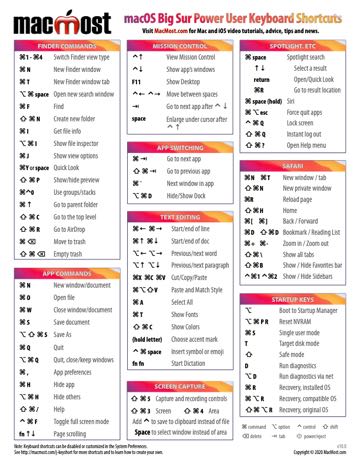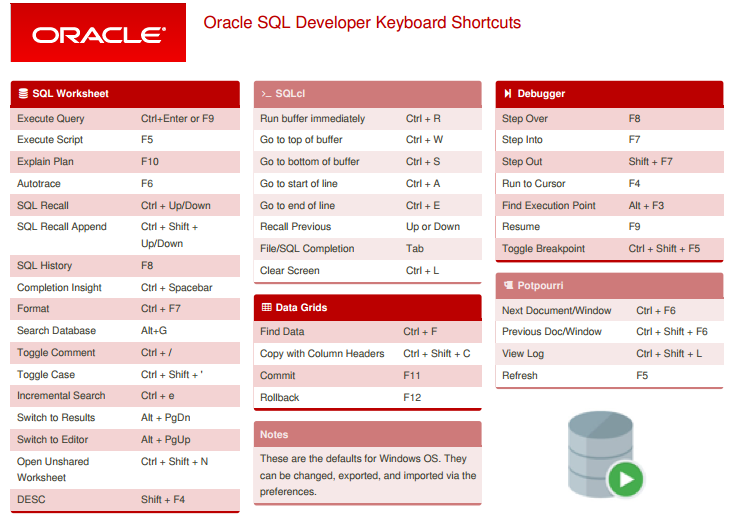

You might need to press and hold some of these shortcuts for slightly longer than other shortcuts.
Command-Comma (,): Open preferences for the front app. Shift-Command-N: Create a new folder in the Finder. Or use Shift-Command-3 or Shift-Command-4 for screenshots. Shift-Command-5: In macOS Mojave or later, take a screenshot or make a screen recording.  Command-Tab: Switch to the next most recently used app among your open apps. Space bar: Use Quick Look to preview the selected item. Control-Command-F: Use the app in full screen, if supported by the app. Control–Command–Space bar: Show the Character Viewer, from which you can choose emoji and other symbols.
Command-Tab: Switch to the next most recently used app among your open apps. Space bar: Use Quick Look to preview the selected item. Control-Command-F: Use the app in full screen, if supported by the app. Control–Command–Space bar: Show the Character Viewer, from which you can choose emoji and other symbols. #MAC KEYBOARD SHORTCUTS CHEAT SHEET PDF HOW TO#
Learn how to change a conflicting keyboard shortcut.) (If you use multiple input sources to type in different languages, these shortcuts change input sources instead of showing Spotlight. To perform a Spotlight search from a Finder window, press Command–Option–Space bar.

Command–Space bar: Show or hide the Spotlight search field. To close all windows of the app, press Option-Command-W. Command-O: Open the selected item, or open a dialog to select a file to open. To minimize all windows of the front app, press Option-Command-M. Command-M: Minimize the front window to the Dock. To view the front app but hide all other apps, press Option-Command-H. Command-H: Hide the windows of the front app. To find the previous occurrence, press Shift-Command-G. Command-G: Find Again: Find the next occurrence of the item previously found. Command-F: Find items in a document or open a Find window. In some apps, you can undo and redo multiple commands. You can then press Shift-Command-Z to Redo, reversing the undo command. Command-V: Paste the contents of the Clipboard into the current document or app. Command-C: Copy the selected item to the Clipboard. Command-X: Cut the selected item and copy it to the Clipboard.







 0 kommentar(er)
0 kommentar(er)
